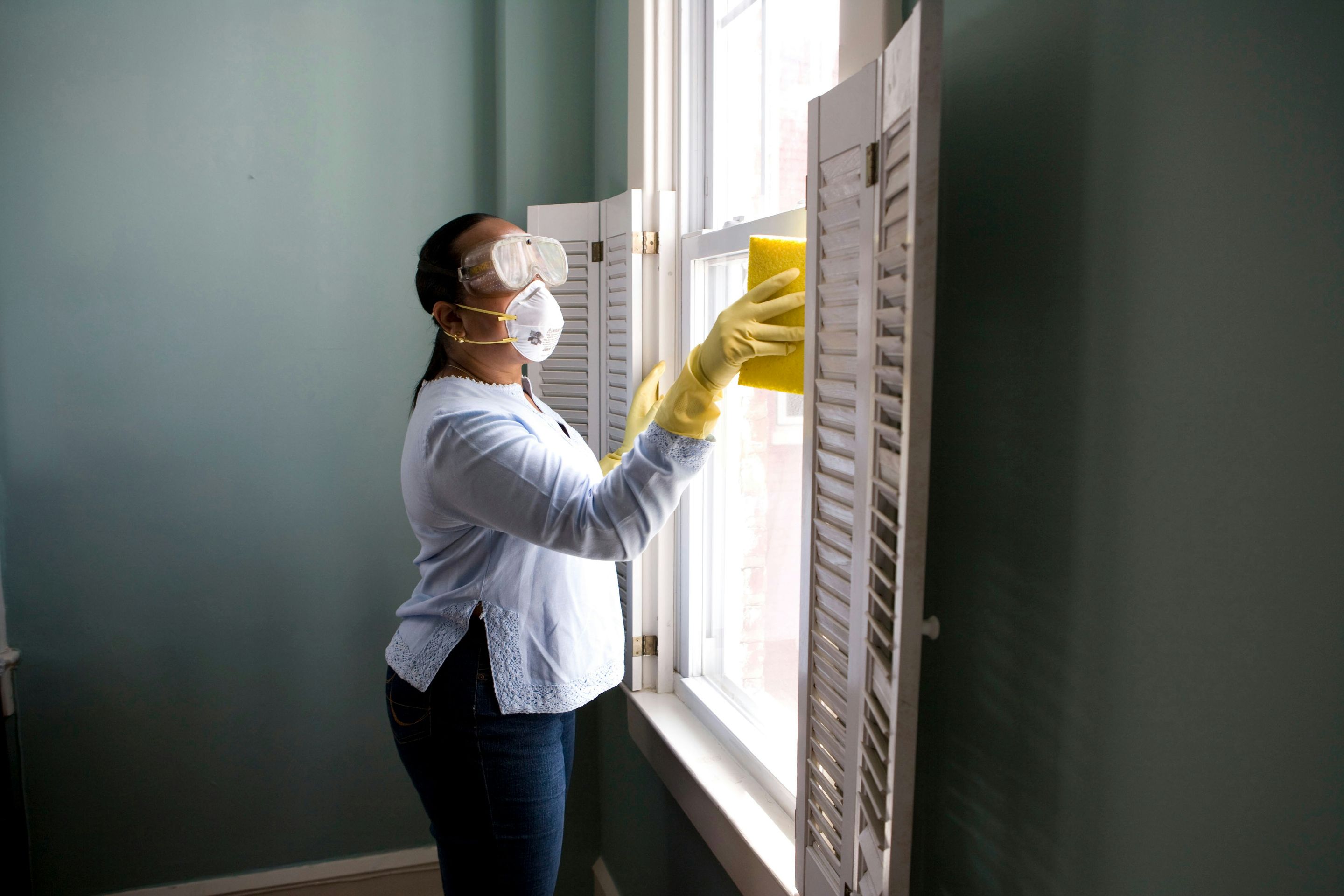Mould – Who Is Responsible in a Rental Property?

Share
Mould is more than just an unsightly inconvenience. It can pose serious health risks, including respiratory issues, asthma and allergic reactions if left untreated.
In rental properties, addressing mould can become complicated as landlords and tenants share responsibility for preventing and resolving mould. Notably, a landlord is legally obliged to provide a safe and habitable property. This obligation extends to keeping the property in good repair and addressing any issues – such as leaks or poor ventilation – that could lead to the development and growth of mould.
This article outlines the health dangers associated with mould and clarifies the responsibilities of both landlords and tenants in managing mould in rental properties here in New South Wales.
The health risks of mould
Mould thrives in damp environments and can develop on walls, ceilings, carpets and other porous surfaces. Prolonged exposure to mould can cause respiratory problems, allergic reactions and other health complications, particularly for individuals with asthma or compromised immune systems. Any mould must be dealt with promptly to ensure a safe living environment. So, who is responsible for what?
Landlord responsibilities
A landlord is legally required to ensure the rental property meets habitability standards, meaning it must be safe, fit for living and well-maintained throughout the tenancy. If mould develops due to structural issues – such as a leaking roof or faulty windows – the responsibility to fix the problem and remove the mould falls on the landlord.
Landlord obligations include:
- Ensuring the property meets minimum ventilation standards.
- Repairing leaks, ventilation issues and plumbing faults promptly.
- Addressing mould that arises due to pre-existing damage or poor maintenance.
- Ensuring the property is regularly inspected – Regular inspections conducted by a professional property manager will identify any potential issues early, protecting the tenant and saving money by preventing escalation.
If you are a landlord, you should act swiftly on reports from your tenant or property manager of moisture or leaks to prevent mould from spreading. If a mould problem makes the property unsafe, it is considered an urgent repair and must be addressed immediately under tenancy laws.


Tenant responsibilities
Tenants also play an essential role in preventing mould through good ventilation and hygiene practices. Mould can result from everyday activities, such as cooking, showering and drying clothes indoors, especially if windows and exhaust fans are not used.
Tenant obligations include:
- Ensuring adequate ventilation by opening windows or using fans when necessary.
- Cleaning up small amounts of mould that arise from condensation or minor moisture build-up.
- Reporting any leaks, water damage or signs of mould to their property manager as soon as possible.
- Preventing lifestyle-related moisture build-up, such as by not blocking vents or drying clothes indoors without proper ventilation.
Promptly reporting issues allows landlords to take action before minor problems escalate into major repairs.
Navigating disputes
Disputes over mould responsibility can arise when both structural and lifestyle factors contribute to the problem. To prevent misunderstandings:
Document any signs of mould at the beginning of the tenancy on the Condition Report. It’s also a good idea to take photos.
If you are a tenant, report issues in writing, ensuring the property manager responds promptly to all concerns.
Mould can create serious health risks and lead to costly repairs if left unchecked. Landlords must provide a safe, habitable property with appropriate ventilation and address any structural issues that lead to mould. Tenants must maintain the property responsibly, ensuring adequate ventilation and reporting any problems early.
A property managed by Shead undergoes regular inspections to identify and address potential issues before they escalate so tenants can enjoy a safe and comfortable living environment while protecting the landlord's asset. For more information or expert advice on our property management services, contact us to discuss how we can help you maintain a healthy rental property.
Discover the current market value of your property
Our wealth of experience across our whole team will get you a better price for your property.


